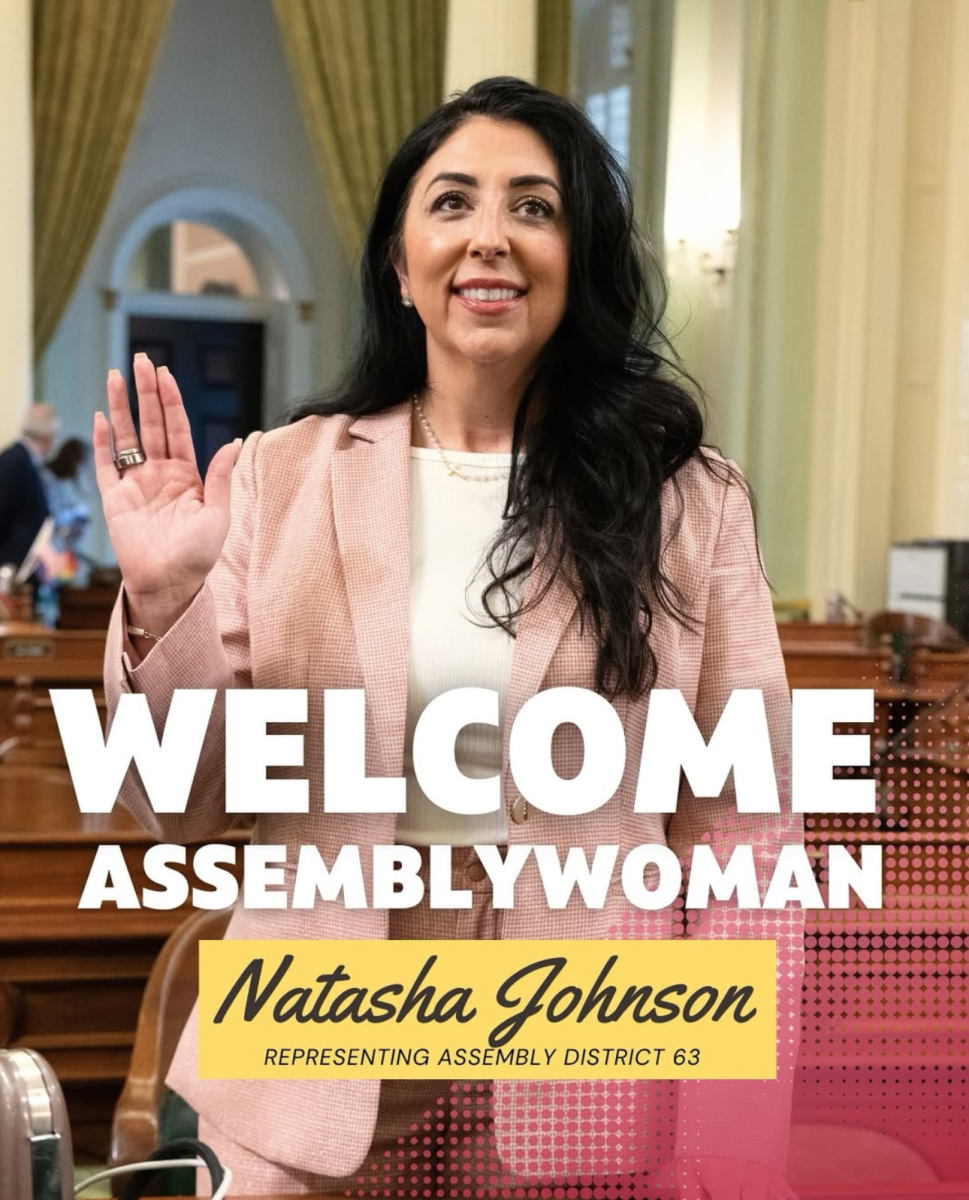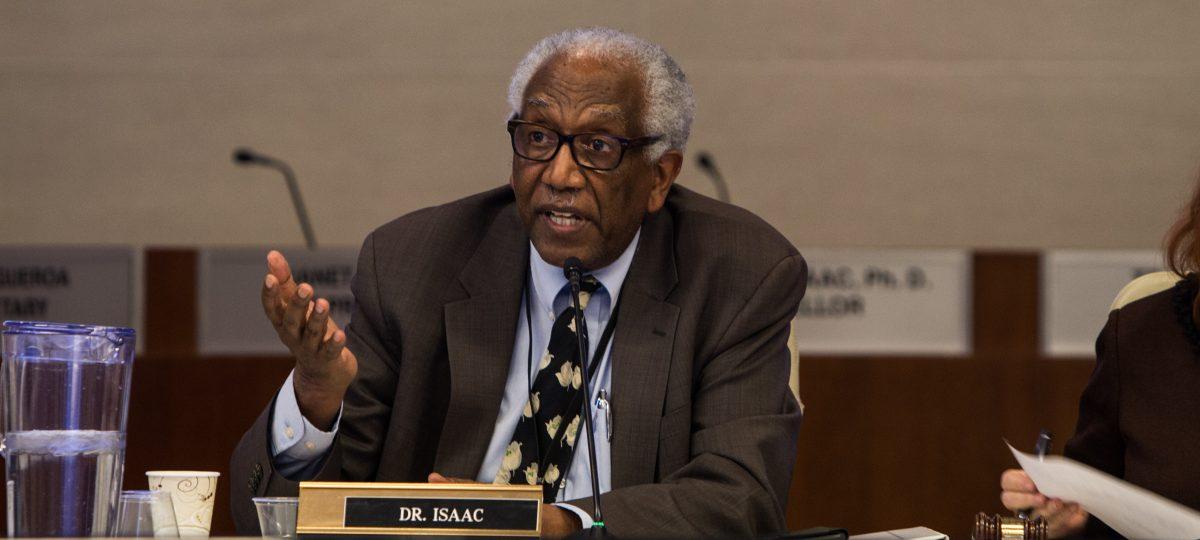By Stephanie Holland
By Stephanie Holland
As the semester comes to a close, Riverside City College President Jan Muto is completing her first semester here.
In an interview she discusses the effect the budget crisis will have on RCC and how her first semester went.
S.H.: What has surprised you most in your first semester here?
J.M.: I am still in awe of the level of community support for our students, faculty and staff, but I am just so pleasantly surprised by just how talented everyone is.
At the end of the year there are all these performances…between the basketball team winning a state championship and the men’s track team winning back to back state championships and then I was at the President’s Honor Recital from the music department and the Art Gallery opening, it just goes on and on and on.
The depth of talent here, I knew it was good, but it’s better than I could have ever imagined.
S.H.: Are there one or two moments that have stood out as really memorable to you this semester?
J.M.: One is not really academic at all, but I can’t help that it’s standing out. I was probably here a week or two weeks and I was sitting here in my office and I heard the fire alarm go off in the Quad.
So I’m sitting here and I didn’t hear any fire engines or anything and the alarm kept going off and going off, so finally I decide to just walk over there and see what’s going on.
There was an appropriate number of students and faculty on the exterior of the Quad…but I walk into the Quad and I just saw a sea of people, so I had to stand up on a bench and say hello it’s me, I’m your new president. You need to quietly exit the Quad because if there is a fire you will be in the center of a ring of fire…and people were like sure, we should probably do that.
That was one, the other was at each board meeting I try to recognize the achievements of students, faculty and staff in my report to the board, those Tuesday nights are most important to me for that moment of being able to do that.
The first time I was able to really focus on that was probably my second board meeting and I was able to say listen to the achievements of our students…it was just one thing after another and it doesn’t get any better than that.
S.H.: With the recent failure of the propositions, how is Riverside planning to handle the budget crisis? Are there programs that are already on the chopping block?
J.M.: Fortunately, we have a very comprehensive strategic planning committee and in that strategic planning committee there is a sub-committee that deals with financial resources and they have been working with Becky Elam, our vice president of business services, all year on helping to make sure we’re prepared for the cuts, we figured it was going to happen…that group has been working very diligently…but I will be meeting…with all the vice presidents and we’ll be putting things on the table.
Right now there are no specific programs or services that are specifically on the chopping block; quite frankly everything’s open to look at.
The worst thing for us is the amount of our budget that’s in personnel, that doesn’t give us a lot of flexibility. We have between 80 and 90 percent of our operating budget in personnel costs. That doesn’t give us room to cut other areas, so we’re probably going to have to cut some personnel costs.
S.H.: We received information that some of the advanced preparation programs are in danger of being cut.
Students are currently circulating a petition to save them; do you see this as a good way to save these programs? Also is it helpful for students to get involved and let you know what they really need?
J.M.: I think that’s probably the most important thing and not to just let me know, but to let our state legislators know because those are the people who are voting on the budget.
It’s tragic that some of the specific fund lines that have been tagged as possible cuts are what they call categorical funding programs and most of those are student support programs.
What we know about student success says it’s absolutely critical to have that support. Yes those things do help and it could really help if we can get them to the legislators.
S.H.: Is the campus prepared for the expected rise in enrollment in the fall?
J.M.: Prepared is an interesting term, we didn’t know we were going to grow as much as we did this year.
The figures that we’ve seen are anywhere from 18 or 19 percent that we grew in winter session and hovering right in the low 20s for last fall and this spring.
The dilemma is how we continue to provide services…particularly classes for all of those people who need it, because in these economic times this is where people come.
We’re looking at fuller classes…this past year we were about 4000 full time equivalence of students over our projected target. That’s part of what we’ll be figuring out next week, can we add some sections or expand some sections that haven’t been expanded before.
S.H.: The three campuses are separated, but do you think that if there’s more communication between the three, that will also help students?
J.M.: As we become three fully accredited campuses…it really becomes incumbent upon us to leverage our resources so we’re not working at cross purposes, but we’re providing opportunities to students that can dovetail off one another, that can fit like a jigsaw puzzle.
S.H.: You’re a big supporter of distance learning, do you think that’s another thing students should be looking at?
J.M.: It gives you a lot more flexibility, a lot of students have to work…and some students learn better in that environment rather than sitting in a classroom.
I’ve made it pretty clear that I would like this institution to look at how we can increase accessibility to courses by having either part or all of a course online so that a student has to make less trips here, so it’s also less expensive for a student because they don’t have to drive here.
Dr. Gray, our new chancellor, has had some great experience with distance learning, so I think we’ll really be bringing that to bear on how each of the three locations can promote distance learning.
S.H.: There’s a lot of new construction planned and in the next couple of years the college won’t even look the same.
Are you excited by that idea or are you daunted and overwhelmed? Will students have to step around tractors to get to class?
J.M.: We hope not, but it’s a very legitimate concern. One of the first things I found out was that the plan for the new nursing science building which will go next to the Digital Library. The plans for that building were to go into construction the same time as the new aquatic center which will go down near the football field in the parking lot there at the same time and all I could see were parking spaces going away.
I took it immediately to strategic planning and I took it to the academic senate and also took it to the district office…I feel very confident that we’re working with the architects and we’re working with some partners nearby on how we’re going to accommodate parking and flow of traffic.
I’ve already seen some preliminary plans on both traffic and safety and I feel very confident that everyone will be okay.
S.H.: Do you have any advice for graduates and transfer students moving on to the next phase of their lives?
J.M.: My advice would be to be true to yourself. You will all face challenges, as long as you’re true to yourself and true to your values and enlist the assistance of others you trust, you will do well. And never stop.






